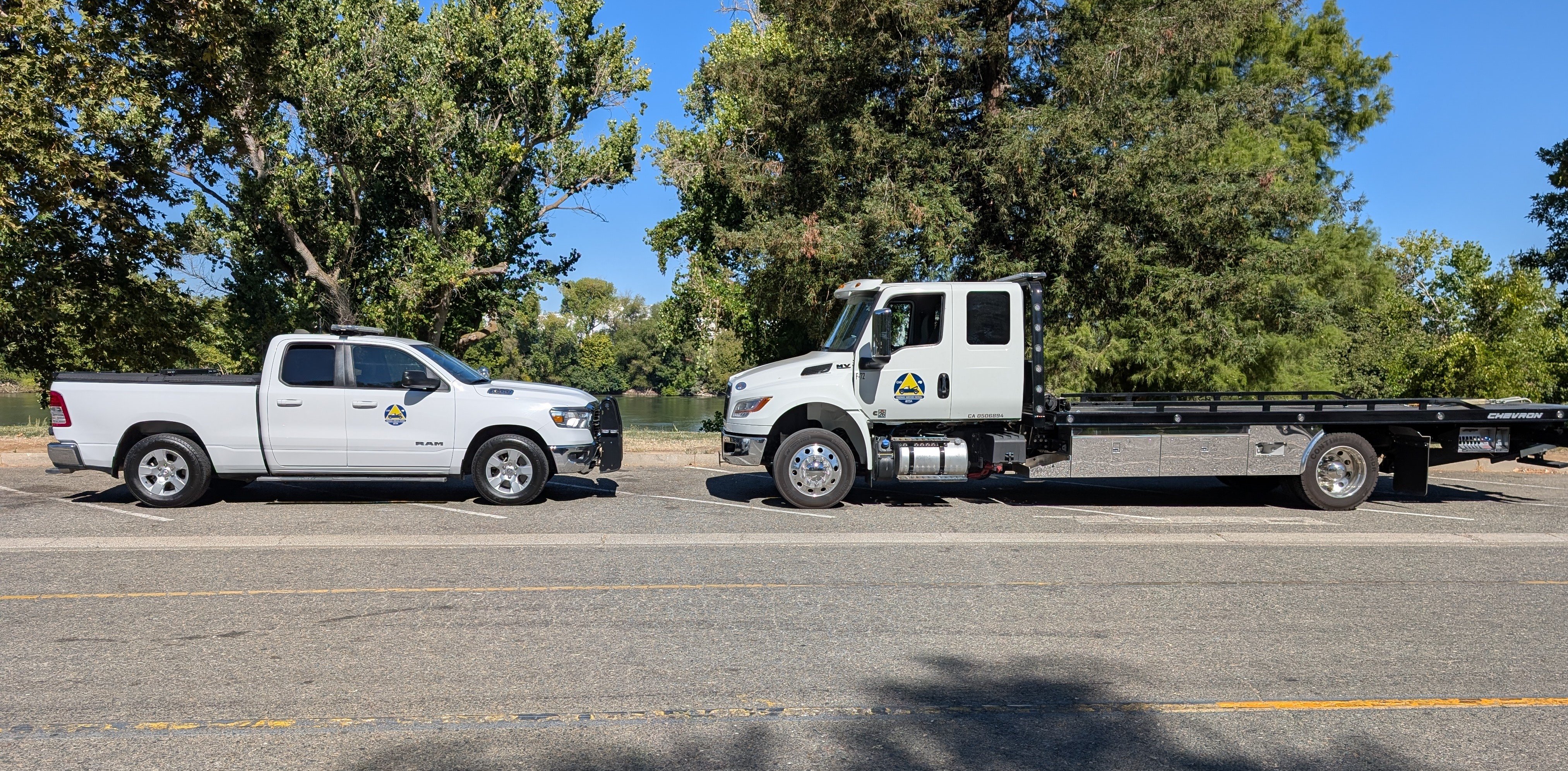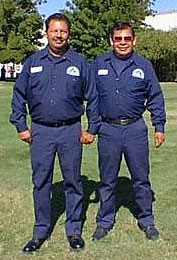Freeway Service Patrol

The Freeway Service Patrol (FSP) is a joint program provided by the California Department of Transportation (Caltrans), the California Highway Patrol (CHP) and the local transportation agency. The FSP program is a free service of privately owned tow trucks that patrol designated routes on congested urban California freeways. Typically, FSP operates Monday through Friday during peak commute hours, and all day in pre-designated freeway construction zones. In heavily congested freeway corridors it is becoming more commonplace for FSP to operate during the midday and on weekends/holidays in addition to the weekday peak period service.
 The goal of the FSP is to maximize the effectiveness of the freeway transportation system. The FSP is a congestion management tool which strategically addresses commute traffic pattern problems. Deployment of the FSP trucks is driven by congestion patterns in major metropolitan areas. It is necessary for the FSP program to respond immediately to changing or increasing needs for impediment mitigation.
The goal of the FSP is to maximize the effectiveness of the freeway transportation system. The FSP is a congestion management tool which strategically addresses commute traffic pattern problems. Deployment of the FSP trucks is driven by congestion patterns in major metropolitan areas. It is necessary for the FSP program to respond immediately to changing or increasing needs for impediment mitigation.
The goal is accomplished by the expeditious removal of disabled/stranded vehicles from the freeway. Removing obstructions on the freeways as rapidly as possible has a positive impact on traffic volumes by eliminating problems which contribute to non-recurrent congestion. Each year, the FSP program assists approximately 650,000 motorists on California's highway system.
Rapid removal of freeway obstructions also reduces fuel consumption and minimizes automobile emissions by reducing the time vehicles spend idling in stopped traffic. Currently, over 350 tow trucks operated by CHP-trained, certified and supervised drivers, patrol in excess of 1,750 miles of the most congested freeways in California.
 If you get stuck on the freeway because your automobile stops running, FSP can help. For example, FSP will:
If you get stuck on the freeway because your automobile stops running, FSP can help. For example, FSP will:
- Offer you a gallon of gas, if you run out.
- "Jump start" your car if the battery is dead.
- Refill your radiator and tape hoses.
- Change a flat tire.
Note: The FSP program...
- Cannot tow your vehicle to a private repair service or residence.
- Does not recommend tow service companies, repair or body shops.
- Does not tow motorcycles.
- Does not assist vehicles which have been involved in accidents, unless directed by CHP.
- Does report any accident to the CHP.
If FSP cannot get your car going, it will be towed free of charge to a designated "drop spot" location approved by the CHP. The FSP will also contact additional assistance for you, if needed. The CHP will notify an auto club or towing service.
The FSP serves the following areas:
- Valley Division - Sacramento, Yolo, Placer, El Dorado and San Joaquin counties
- Golden Gate Division - Alameda, Contra Costa, Marin, Napa, Santa Clara, San Francisco, San Mateo, Solano, and Sonoma counties
- Central Division - Fresno county
- Southern Division - Los Angeles county
- Border Division - San Diego and Orange counties
- Coastal Division - Monterey, Santa Cruz, Santa Barbara counties , San Luis Obispo, Ventura and Moorpark
- Inland Division - Riverside and San Bernardino counties
The Freeway Service Patrol (FSP) can be contacted from your mobile phone or using a freeway call box by dialing 5-1-1.
